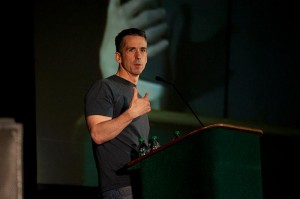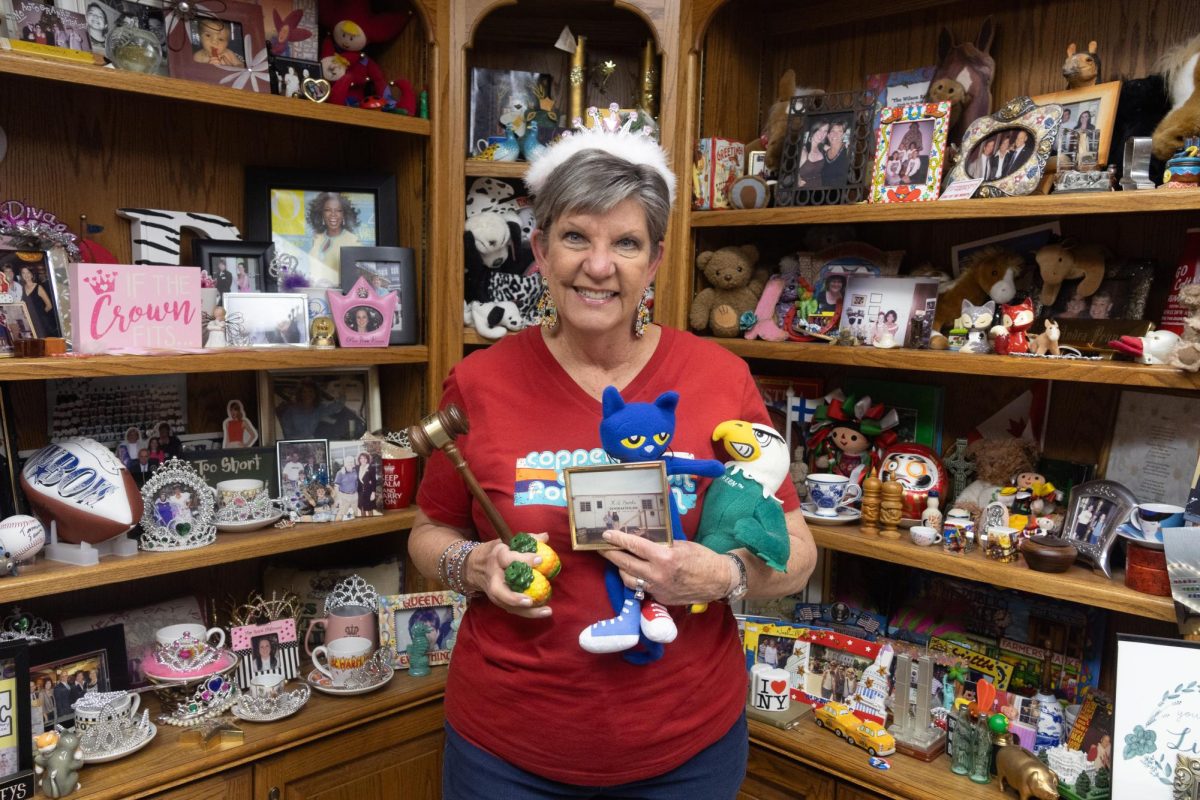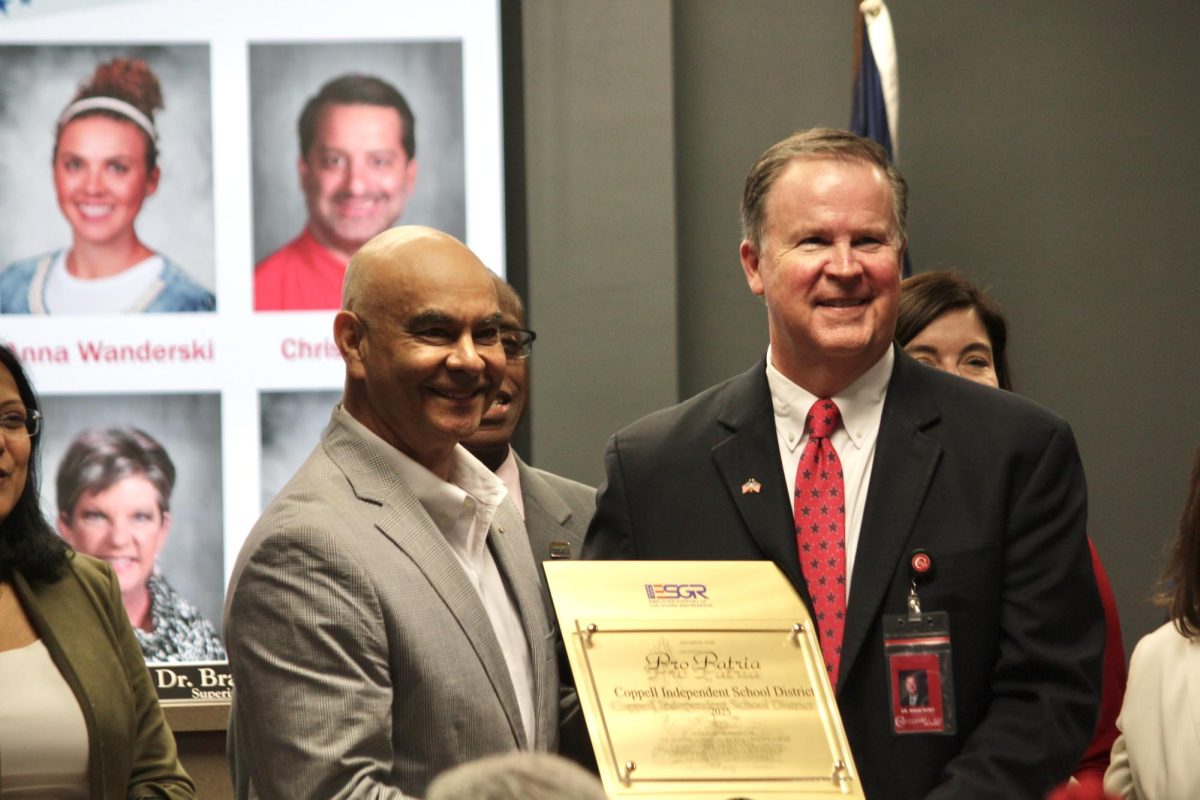By Sammy Robben
Sports Editor

SEATTLE, Wash. – As thousands of students sat in the Washington State Convention Center on Friday to hear what they believed would be a conventional speech about student journalism, they received a much different message.
For the hour and 20 minutes that syndicated sex advice columnist Dan Savage lectured these aspiring journalists, they realized the impact their reporting could make on not only themselves but on those around them.
As Savage, creator of the “It Gets Better” video project, began his speech regarding the video project at the 2012 JEA/NSPA Spring National High School Journalism Convention, it became clear that he had much more to teach the audience than journalism. Savage, whose speeches are known for being unconventional, was chosen for this event to go along with the theme of “journalism on the edge.”
“The committee was looking for a way to deal with topics that were serious, new and ground breaking,” local convention chairman Steve Matson said. “When we were brainstorming, we thought about journalists or celebrities who were local and had good messages and some of us thought about Dan Savage.”
Savage founded the “It Gets Better” project by creating videos to help LGBT youth by showing them that the bullying they often experience in high school and middle school gets better. As he spoke, Savage’s eccentric attitude and way of addressing the audience of high school students and advisers raised concerns for many people, bringing some to leave the room.
During his speech, Savage described the homophobic bulling that occurs in schools and raised controversy by attacking the anti-gay views of many Christians and the anti-gay readings of the Bible.
“People often say that they can’t help with the anti-gay bullying acts because it says right there in Leviticus, it says right there in Timothy, it says right there in Romans, that being gay is wrong,” Savage said. “We can learn to ignore the [explicit] in the Bible and what it says about gay people.”
After Savage’s speech concluded, discussions of the talk could be heard through the convention center. Many students and advisers defended their beliefs on the controversial topics, and how Savaged addressed them.
Two convention attendees, Hannah Apsenis and Claire Campbell of The Nordic News in Kenmore, Wash. were heatedly debating their feelings with a student from another school. Both felt that the keynote was inappropriate for the audience he was addressing.
“I felt that it was very unprofessional for a speech that was directed at a group of high school journalists,” Apsenis said. “I felt that it was directed at a much more mature audience, and I feel like he really picked out certain people and attacked them, which I truly believe crossed a line by saying more than he needed to.”
They argued his message of acceptance to be hypocritical, and were offended by Savage’s apparent dislike toward Christians and their strong belief in the Bible.
“When he was almost mocking the people who did leave, I just felt that that was ironic since his whole speech was about being open towards different people and to be kind toward others,” Campbell said. “I felt that for him to mock those people who left because of their faith was extremely offensive, and I was saddened that he would not take his own words to heart.”
Many advisers were concerned with the way Savage approached the topic, though they agreed with the message as a whole. Many felt by using foul language and attacking certain people in the room, he lost some of the audience and took away from his overall message.
Though he disagreed with the keynote, Jim Mccrossen, adviser of The Express at Blue Valley Northwest High School in Overland Park, Kan., tried to use the keynote as a learning experience for his students.
“I wish he had talked more about the journalism aspect of what he does or more about how what he does can fit into journalism,” Mccrossen said. “I think it was good and when I talked to my students after and said it is important to be challenged in what you believe because you never become stronger in anything if you are not challenged.”
Even those who agreed with Savage’s message were surprised by the way he went about sharing, but still took away inspiring messages.
“I figured he was going to talk about ‘It Gets Better’, but I don’t think I was prepared for him to be as brutally honest as he was on stage,” said Tim York, adviser of The Journey yearbook in Leesburg, Va. “That being said, I was also excited by that because I knew he cared a lot about what he had to say. For me as a gay educator, the speech was encouraging because I knew that when I walk in my building I am effecting student lives by being true to who I am and I am making a difference for them.”
For those who believed in Savage’s ideas, the talk was inspirational and even emotional for some to talk about. Matson was so pleased with Savage and his performance that he could hardly contain his emotion when discussing it.
“I couldn’t be happier with what he said and how it turned out,” Matson said. “The reason I choked up for a moment was because I’m glad the committee was afraid to do something a little controversial. I think people could have reacted worse, and so much good happened for what he did.”








